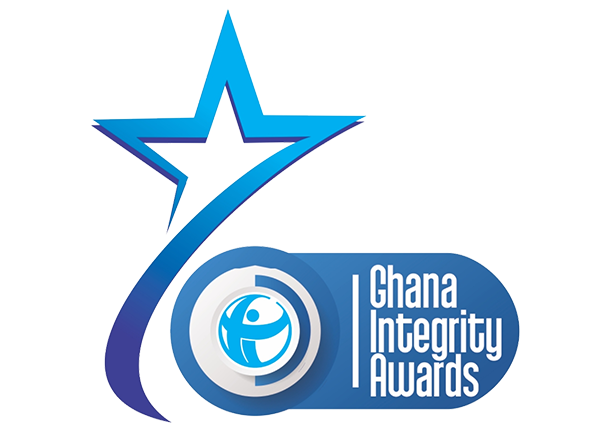News/Articles
News/Articles » TOWARDS A CULTURE OF PUBLIC INTEGRITY IN GHANA THROUGH AWARDSTOWARDS A CULTURE OF PUBLIC INTEGRITY IN GHANA THROUGH AWARDS

13 August 2019
Integrity in a society, or the lack thereof, can have a significant impact on the development and progress of that society.
Integrity can significantly boost inclusive growth and sustainable development, by assuring fair and efficient resource allocation, stimulating competition and investment, and fostering innovation.
In the public domain where elected individuals have been vested with the power of “the people” to control resources on their behalf, integrity in all activities must be uncompromising. That is Public Integrity— the consistent alignment of, and adherence to, shared ethical values, principles, and norms for upholding and prioritizing the public interest over private interests in the public sector— must be practiced at all times. Numerous academic studies have shown that where governance is poor, domestic investment and economic growth suffer.
Integrity in the field of governance must be approached with all necessary tools to ensure leaders act honestly and in the public interest. Several measurement tools have emerged to measure the quality of governance, in particular, those measuring corruption. The fight against corruption, for instance, has been long fought with sanctions as the main tool. However, the effectiveness of sanctions depends largely on the risks of being caught. This traditional approach—sanctions— based on more rules, stricter compliance and tougher enforcement have been of limited effectiveness. A more strategic and sustainable response to the fight against corruption lies in the use of awards as an incentive to honor public officials who have demonstrated integrity in their work.
As the traditional approach seeks to whip people in-line towards acceptable standards and ethical behavior, there is also the need to honor public officials acting in the public interest. Awards are pervasive in all societies. They are normally non-monetary, but in a few cases, they have been accompanied by monetary sums. The honor of receiving an award exceeds the importance of cash price attached to it. Public recognition has a high intrinsic satisfaction, which makes it a potent tool for influencing behavior.
Corruption in Ghana’s public space is no secret. The call on officials, particularly, public servants to act with integrity have not been reneged upon overt the years. The media, civil society organizations, citizen vigilantes are contributing immensely to this fight.
The post-independence era has witnessed a litany of national anti-corruption strategies. Among these have included: moral crusades through the help of religious and community leaders to exhort citizens to uphold the values of integrity and to manifest high moral ethics in their personal lives; confiscation of properties found or believed to have been corruptly acquired by public office holders; declaration of a zero-tolerance policy for corruption; strengthening the nation’s anti-corruption legislative framework through the passage of several anti-corruption laws; embarking on public sector and financial management reforms; and strengthening national anti-corruption institutions such as the Ghana Police Service, Commission on Human Rights and Administrative Justice (CHRAJ) and the erstwhile Serious Fraud Office (SFO). The new addition to these strategies is the office of the special prosecutor.
Amid these anti-corruption strategies is a missing piece. The public is often presented with an incomplete picture of our public officials and organizations; in particular, the picture rarely includes those officials and organizations who conduct themselves with integrity, respecting the need for honest, open and accountable government. Besides, there is no public recognition of their acts of integrity and no system to reward or encourage them.
An “Integrity Awards” can rightly fill this gap. The awards will offer public recognition and support to members of the public sector whose services to the public bears the hallmark of integrity.
One key strength of Awards as an anti-corruption tool is that the awardee tends to abide by the general views held by the giver. In this sense, an Integrity awardee continues to portray exemplary behavior to uphold the anti-corruption view of the giver. Awards in themselves raise welfare. Honoring a person with an award serves to bolster the norms of others undertaking similar activities or upholding similar attitudes. When a public office holder is awarded for putting up incorruptible behavior in his or her work, there is a greater tendency of other public servants performing similar duties to eschew corrupt behaviors. The effect may not be rapid, but as the integrity awards gain momentum others will desire to basked-in that glory.
Typically, awards are handed out according to a broad set of criteria. In an integrity awards, honest behavior will feature heavily. The tournament characteristics of awards will cause potential recipients to strive to meet these criteria. By these attempts of meeting the stated criteria, awards will help mitigate corrupt practices and raise public integrity in Ghana. It is indubitable that role models play a role in shaping future generations. In addition to serving as incentives, awards can help establish role models, spread information about successful and desirable behavior for the future leaders to emulate.
Lately, there is growing cynicism towards public institutions in Ghana. The perception of low integrity among public officials has contributed in part to this cynicism. With an award scheme organized by an outfit that has a good public reputation, confidence and trust in the public sector can be restored.
As the Ghanaian society evolves, corruption has become more complex. And as observed, sanctions alone as a tool may be an inadequate method of promoting integrity or suppressing corruption. It will require more than sanctions to achieve the desired level of integrity in our public sector. Public recognition of officials and organizations whose service to the public manifests integrity is an innovative way of curbing corruption and stressing the importance of integrity in public life.
